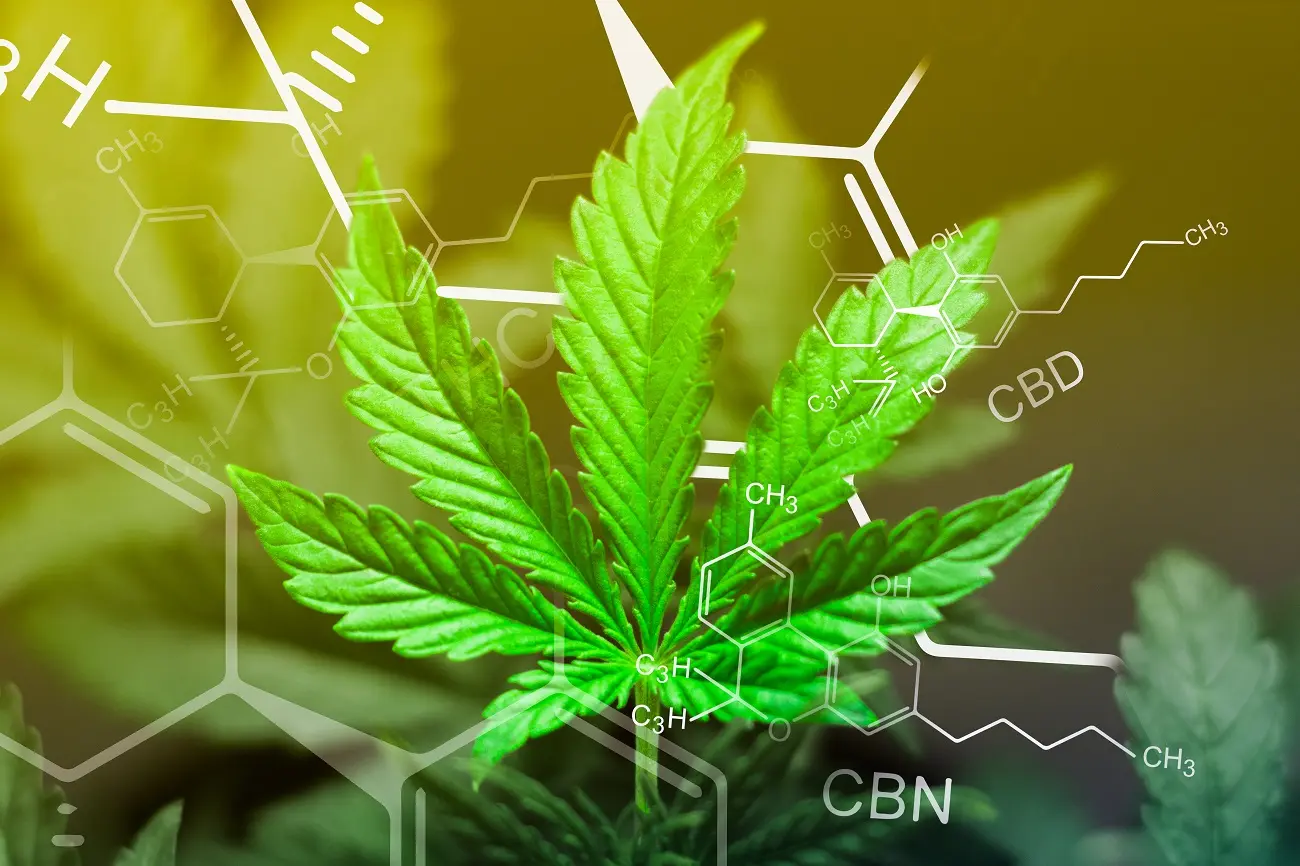You may not know it, but there are actually over 130 known compounds, called cannabinoids, the cannabis plant has within its vast medicinal potential. For starters, THC is commonly known for the psychoactive effects that produce a euphoric “high”, while CBD is known for more relaxation benefits without a high experience. In most cannabis strains, THC and CBD work together for a balanced effect. However, there is also the lesser-known CBN, which has effects between the two, working as an antioxidant known for relieving pain and inflammation.
So, what is the difference between THC, CBD, and CBN? With so much to know about these cannabinoids and their effects on cannabis products, our team is here to breakdown all the details of THC, CBD, and CBN.
What Is THC, CBD, and CBN?
So, what is CBD and CBN, and how do they compare to THC?
All of these compounds are classified as cannabinoids, which are naturally occurring compounds found in the resinous glands of cannabis plants. These compounds offer a range of therapeutic benefits that offer a wide range of medicinal effects.
These cannabinoids can be extracted in different forms, like oil or isolate, and can be consumed directly from cannabis itself. In addition, different cannabis strains offer different levels of cannabinoids, each offering unique effects.
Typically, people think of CBD and THC, with CBD offering relaxing, medicinal benefits with a non-psychoactive cannabinoid while THC has more psychoactive properties. To meet the two in the middle, we refer to CBN, which combines the potential benefits of the two with inflammatory properties and pain relief perks.
Let’s explore more about each of these common cannabinoids below.
CBD (Cannabidiol)

CBD, also known as cannabidiol, is one of the more commonly known cannabinoids found in the cannabis plant. Unlike THC, CBD does not cause euphoric effects, or a “high”, that other cannabinoids may produce.
After THC, the nonpsychoactive cannabinoid found in cannabis, CBD, is the second-most prominent cannabinoid in the cannabis plant. In the hemp plant specifically, it is the most abundant.
As of 2023, CBD is the most researched cannabinoid with a range of applications and potential treatment benefits. It has been used for years for a range of medical conditions but also is one of the popular cannabinoids utilized by recreational users.
THC (Tetrahydrocannabinol)
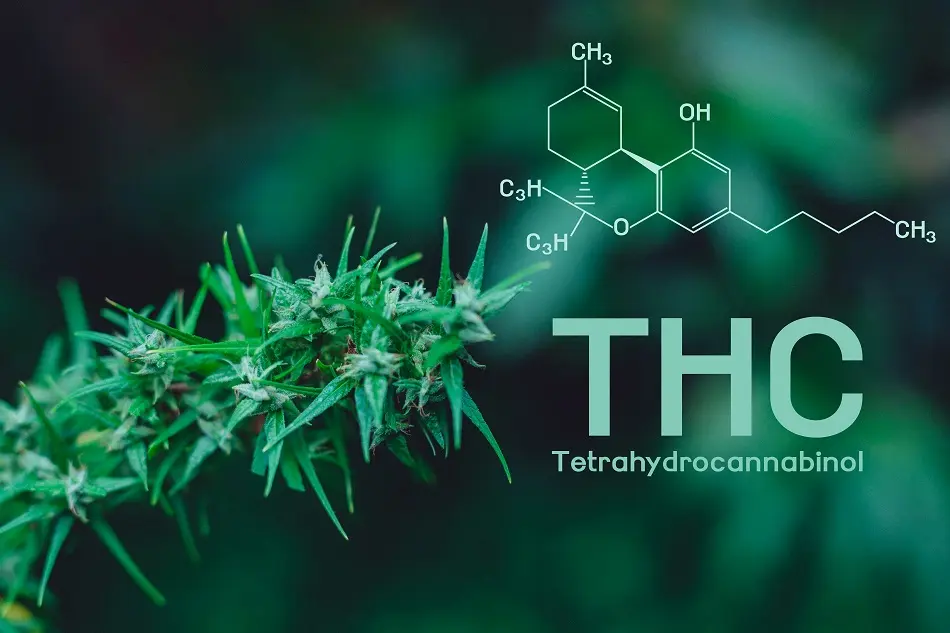
Likely one of the most commonly known compounds in the cannabis plant is THC or tetrahydrocannabinol. Most abundant in a mature cannabis plant, it’s the primary compound that’s responsible for a psychoactive effect on users.
While more research is emerging about THC, some states in the U.S., including Illinois, have legalized its use for both medical and recreational use, though it is not yet FDA-approved for medical use.
Most commonly known for its recreational use, THC can serve as an appetite stimulant, for muscle and joint discomfort, as a sleep aid, and as a tool for personal growth and introspection. This compound has a similar shape to the body’s primary endocannabinoid system, anandamide. Anandamide and THC work by binding to CB1 cannabinoid receptors in the central nervous system, activating the presynaptic CB1 receptors to cause euphoric effects.
CBN (Cannabinol)
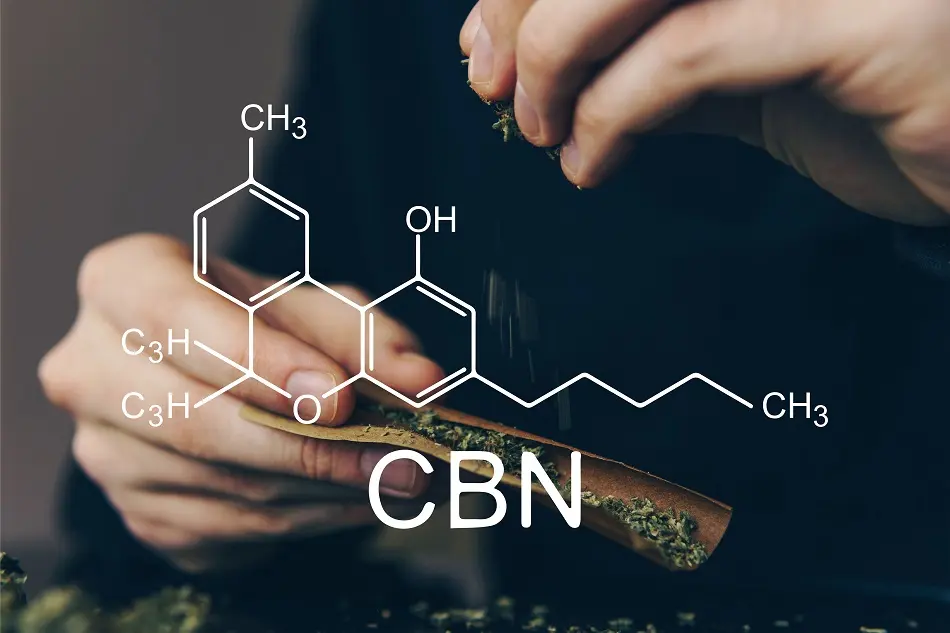
While THC and CBD are the two cannabinoids most commonly known, there are also CBN products available with a combination of benefits. Of the lesser-known cannabinoids, CBN, or cannabinol, is considered a minor cannabinoid found in more mature cannabis plants. It is found as THC starts to degrade due to oxygen exposure and has the potential to be mildly psychoactive in high doses, though it is typically considered a non-intoxicating compound.
On its own, the CBN cannabinoid can be incredibly diverse in its benefits. Typically, it is used for post-workout recovery, to maintain healthy brain function, and for sleep support. Since it is a metabolite of THC, it can increase the effects of THC, too.
Key Differences Between CBD, THC, and CBN
Now that we know more about THC, CBD, and CBN, it’s time to understand more about each of their unique properties. To further understand the key differences between THC, CBD, and CBN, we are breaking down a few of the essential differences.
1. Onset Time and Effects Duration
To start, when it comes to cannabis consumption, CBD often has a slower onset, taking anywhere from 30 minutes to an hour to feel the health benefits. These effects can last for a few hours.
THC, on the other hand, typically has a faster onset with effects felt within just a few minutes, and can last longer.
The cannabis-derived compound CBN is known primarily for its sedative properties, causing a faster onset and potentially longer sedative effects for relaxation and sleep-inducing benefits. It’s important to understand these differences the cannabinoids have on the endocannabinoid system to choose your best solution.
2. Chemical Composition
THC, CBD, and CBN also differ in their chemical composition. CBD and THC specifically share the same molecular formula but have different arrangements of atoms that create distinct effects in the body. However, since CBN is the byproduct of THC at a later cannabis plant age, it has a unique chemical structure. With this in mind, each cannabinoid has different effects and potential therapeutic benefits.
3. Psychoactivity
Each of the different cannabinoids has different effects, including when it comes to psychoactivity.
CBD is non-psychoactive and does not produce euphoric effects associated with THC. THC, on the other hand, is considered highly psychoactive and can induce euphoria, relaxation, and an altered perception. Lastly, CBN has milder psychoactive properties than THC which are typically less pronounced. Understanding these important differences is essential to choosing the best cannabinoid based on your ideal effects and personal preferences.
4. Medical Benefits
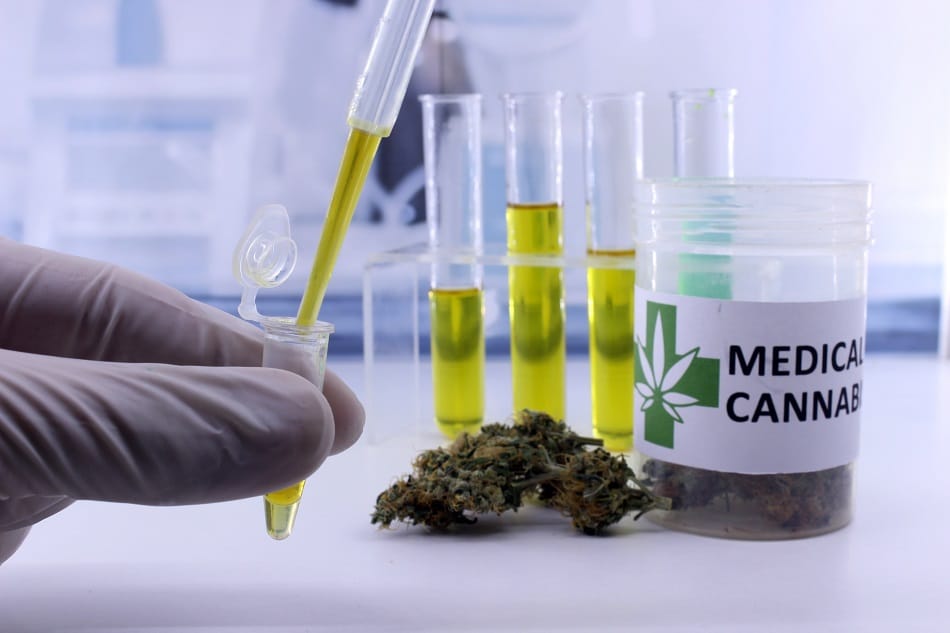
Using cannabis for medical purposes isn’t new, but is growing more popular. CBD products have gained recognition for their potential therapeutic benefits. Most notably, CBD-infused products can assist with pain relief, reducing inflammation, managing anxiety and stress, and even potential anti-seizure properties.
Products with a THC content are commonly used for their analgesic properties, appetite stimulation, anti-nausea effects, and potential benefits for health conditions like glaucoma and muscle spasms. CBN, on the other hand, is currently being further researched for the potential sedative properties that can promote sleep and relaxation.
With a range of potential benefits, understanding the difference between THC, CBD, and CBN is a must to find your best solution.
5. Legal Requirements
Understanding your unique state laws is a key part of any THC, CBD, and CBN exploration.
For starters, in Illinois, CBD legal products, specifically those derived from hemp with a THC content of less than 0.3% are legal for both medical and recreational use. This means that people can purchase and own CBD products without a medical card. THC, however, is legal for recreational use in more limited quantities and is strictly regulated by licensed dispensaries. This extends to the cultivation, possession, and distribution of THC products, which are subject to restrictions. CBN’s legal status, as it’s a byproduct of THC degradation, has the same legal requirements as THC.
6. Side Effects
When it comes to side effects, CBD is typically well-tolerated with mild side effects, including drowsiness, dry mouth, and changes in appetite. THC, however, can cause other side effects like increased heart rate, dry mouth, impaired memory, coordination issues, and red eyes. Similar to THC, CBN has similar side effects but they are typically less pronounced since it has a lower potency.
7. Drug Testing

CBD-isolate products without THC are unlikely to appear on drug tests. However, THC can be detected on drug tests and cause a positive result. Similarly, CBN can be detected on drug tests.
If you are using one of these cannabinoids, it’s important to know the detection window and threshold for each cannabinoid in a drug test, which depends on the testing method and other individual factors.
How to Determine the Cannabinoid Content of a Product?
To better understand the potency and effects of a cannabinoid product, you must understand the cannabinoid content in a product. Some methods to do this include:
- Lab reports: Opt for products that have undergone third-party lab testing. These lab reports provide detailed insights into the cannabinoid profile, including levels of THC and CBD vs CBN, as well as other compounds. A reputable manufacturer typically makes the lab reports available on their website or on request.
- Consult with a professional: If you want to know more about the cannabinoid content of a product, you can always seek guidance from a knowledgeable professional, like a cannabis specialist, healthcare provider, or budtenders at licensed dispensaries. These specialists will be able to provide more insights into different products and help you understand lab reports.
- Check labels and product descriptions: When purchasing cannabis products, always read the labels and product descriptions. Legally compliant cannabis products will offer cannabinoid information on the packaging, which will provide clear insights into the THC < CBD, and CBN content in milligrams.
THC, CBD, or CBN – What Is Better for You?
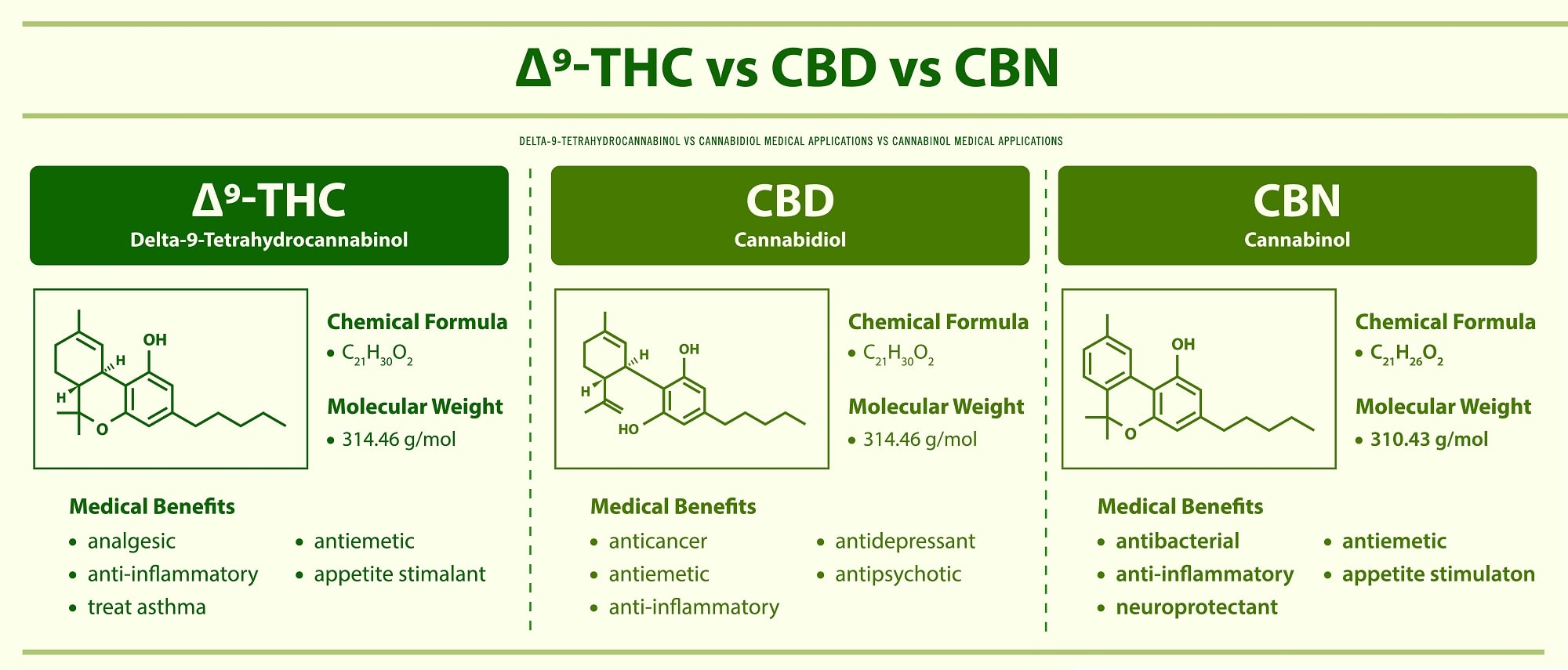
When it comes to choosing between THC, CBD, and CBN, everyone will have different preferences and requirements, making the choice subject to your own needs and goals. When choosing between the three, consider:
- Ideal effects: Before choosing between the three, consider the effects you would like. THC is known for its psychoactive properties, including a euphoric high, while CBD offers more relaxation benefits. CBN, on the other hand, is best for its sedating properties, ideal for promoting sleep.
- Medical conditions: If you have a medical condition, be sure to research the potential benefits of each cannabinoid, and the potential considerations. For example, CBD can help with pain relief, offer anti-inflammatory properties, and help with anxiety and even epilepsy. THC can assist with nausea, appetite stimulation, and some neurological conditions. Lastly, CBN has potential sedative and analgesic effects.
- Personal tolerance: Before trying any of these options, consider your unique tolerance for psychoactive effects. If you are sensitive to THC or want to avoid significant psychoactive effects, CBD and CBN are better alternatives.
Elevate Your Cannabis Experience with Windy City Cannabis
To embrace the unique properties of THC, CBD, and CBN, as well as other cannabinoids, explore, experiment, and discover more at a reputable dispensary. In Illinois, Windy City Cannabis offers a wide variety of products with different compounds to suit your unique needs and preferences. To begin your journey with cannabis today, contact us or visit one of our stores today.
Sign Up for Our Rewards Program
Find your perfect cannabis products at Windy City Cannabis. Whether you’re a medical or recreational user, we’ve got you covered.
